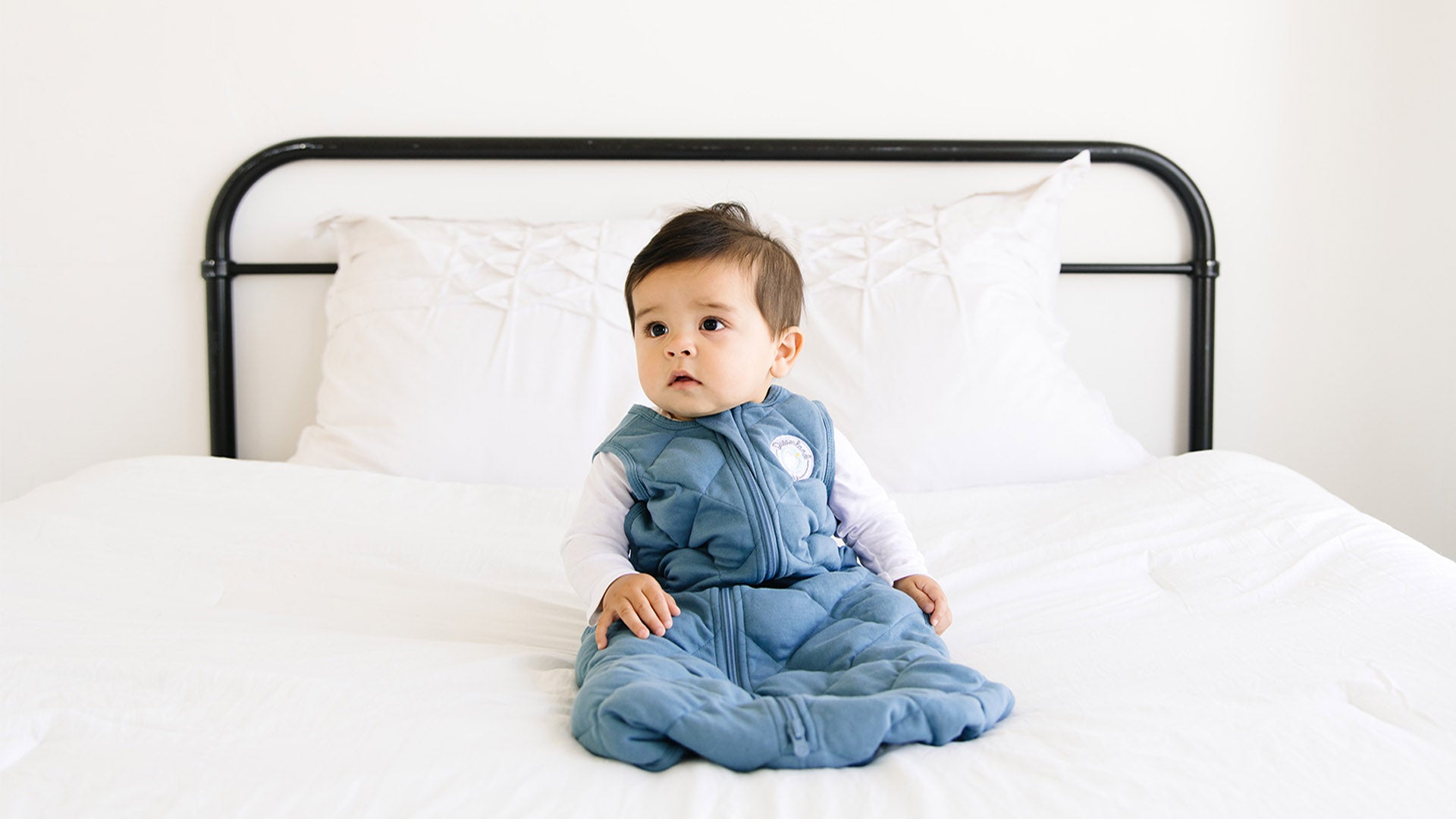Sleep regressions can be a handful to manage - learn the best ways to survive the 18-month sleep regression
Just when you think your child is a pro-sleeper, meaning they’ve successfully gone through sleep training and know how to self-soothe themselves back to sleep, they suddenly have sleep disturbances that make you feel like you’re back at square one. This kind of thing usually happens during various developmental stages that your baby will experience. But if you’re wondering how to deal with sleep regression at 18 months and how to survive the 18 month sleep regression, keep reading as lots of parents have the same FAQs as you’ll see here:
How can I help my 18-month-old’s sleep regression?
Just like with sleep training, the best thing you can do for your 18 month old’s sleep regression is stick to your nighttime routine. Sleep cues like bath, books, bed will signal that it’s time for sleep. Of course, dimming the lights and playing soft music or a white noise machine seem to be parental go-to’s when it comes to sending their toddler off to Dreamland. It’s also important to remember that things like the 18 month sleep regression are temporary. So try to stay calm, take turns for night duty with your partner if possible, and consider that as difficult as this temporary lack of sleep is for you, it’s equally as frustrating for your child. You will all get through it!
How long does 18-month sleep regression last?
With so much talk of sleep regressions, it is possible that your baby will never experience one. Or that your baby will have them more frequently than expected. That’s because every baby is different and manages things like growth spurts, teething, separation, and stimulation in ways that are unique to them. Try not to compare as when it comes to the 18 month sleep regression or sleep regression at any age, it will probably look different for your baby than for someone else’s.
Most experts advise that sleep regressions can last anywhere from one to three weeks, but of course there’s wiggle room. Routine, consistency, and patience will help get through these new, and temporary, sleepless nights.
Can the 18-month sleep regression start earlier?
By the time your baby is 18 months, a lot of things have been happening in their little brains. They’re likely more curious, using more words, and walking independently.
But because all babies develop at their own pace, it is possible that the 18 month sleep regression can happen a month or two earlier or even later. If you’re worried that your baby’s development is off in some way, it’s important to discuss your concerns with your pediatrician or health care provider.
Should I let my 18-month-old cry it out?
Crying it out is a step in some sleep training methods but it may not be for everyone. Some families find it torturous to listen to their baby cry while others find it a means to an end and have a higher tolerance for it. It’s important to remember that sleep regressions at any stage are temporary.
Try to relax, take some time for yourself during the day when possible, and soon enough, everyone should be back to sleeping well.
What time should an 18-month-old go to bed?
Depending on your family’s life style, bedtimes vary from home to home. Keeping in mind that most 18-month olds will likely sleep between 10-12 hours at night (with about a 1-2 hour nap every day), bedtime should be consistent. Starting the wind down routine at around 6pm every night should ensure a quality night sleep for your baby.
Is there a growth spurt at 18 months?
Because babies develop at their own pace, it’s hard to determine whether or not they’ll be a growth spurt at exactly 18 months. However, some common signs that your baby is experiencing a growth spurt include:
- Hunger – you may notice your baby eating more than usual
- Sleep – it’s possible your baby may sleep longer (or even less) than usual
- Crankiness – for no reason, your baby may be fussier or find it harder to settle
How many naps should an 18-month-old take?
While every baby is different, it is fairly common that by the time your baby is 18 months, that they are sleeping for up to 12 hour stretches at night – sometimes even more! It’s likely that they are down to just one nap during the day that can last anywhere from 1-2 hours. If you find that your baby is tired in the afternoon and or overtired by the time you put them down to bed at night, you may want to consider moving up their bedtime earlier to see if that makes a difference.



Share:
Should I Swaddle My Newborn Baby During The Day?
5-Month-Old Sleep Schedule